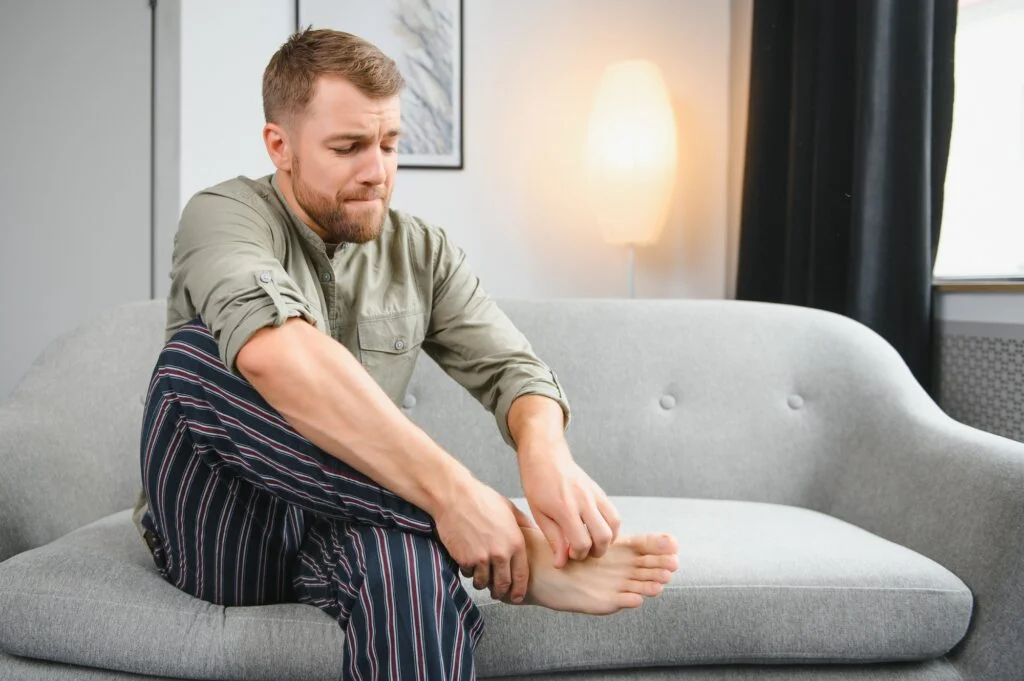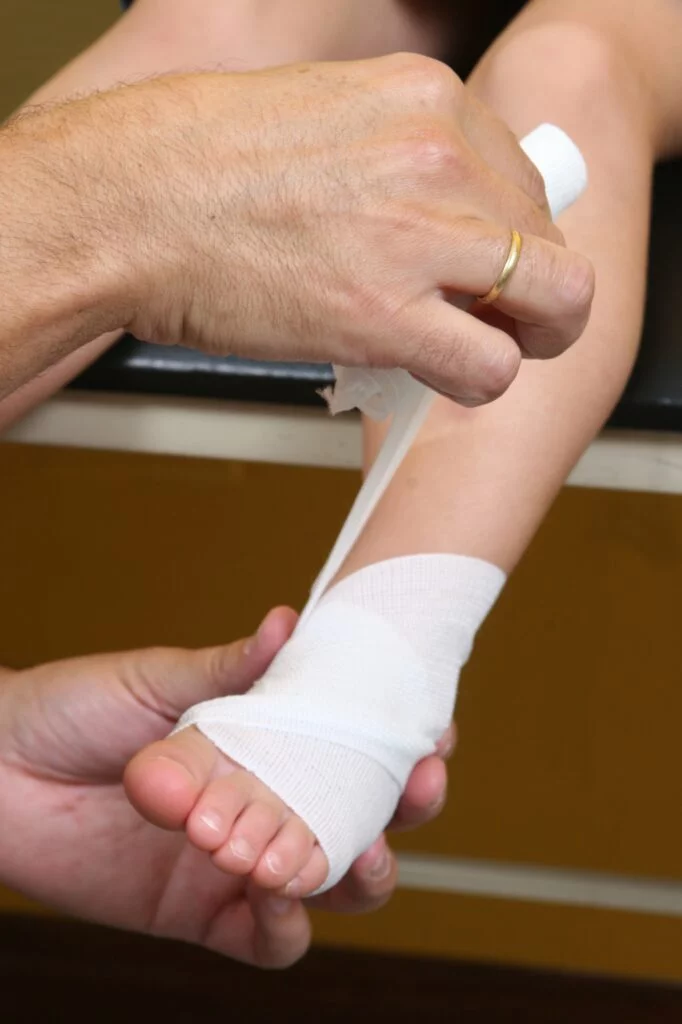What is Athlete’s Foot?
Athlete’s foot is a fungal infection that typically develops between your toes. While anyone can develop athlete’s foot, it’s especially common in people with sweaty feet or who wear tight shoes with little room to breathe.
The condition is closely related to other fungal infections, including ringworm and jock itch, and although uncomfortable, it’s also relatively easy to treat.
What are the Symptoms of Athlete’s Foot?
Athlete’s foot affects everyone differently. However, there are certain signs to watch out for. These include a scaly, red rash on your feet and between your toes, the formation of blisters and ulcers, and dry or scaly skin that develops on the soles and sides of your feet.
If you pick or scratch at the infection, it can also spread to your hands or other parts of your body. Athlete’s foot can affect one or both feet.
When Should I See a Podiatrist Regarding Athlete’s Foot?
Some cases of athlete’s foot respond to over-the-counter antifungal lotions and ointments. However, if your rash continues to spread, or your symptoms persist for more than two weeks, or you have recurrent athlete’s foot infections, it’s important to seek professional help.
If you have diabetes and develop athlete’s foot, you should also make an appointment with us today. Diabetes affects your circulation and increases your risk of developing a bacterial infection.
Common symptoms that may point to a more serious infection include redness, drainage, fever, and swelling.
Are There Any Factors that Increase My Risk of Athlete’s Foot?
Yes. You’re more likely to develop athlete’s foot if:
- You’re male
- You frequently wear ill-fitting shoes
- You share shoes or socks with others
You’re also more likely to experience athlete’s foot if you walk around barefoot in public facilities like locker rooms, swimming pools, or saunas.
How is Athlete’s Foot Treated?
If you have a case of athlete’s foot that’s mild, your doctor might recommend an over-the-counter ointment or powder.
However, if you’ve already tried this type of treatment with no change in your symptoms, prescription-strength medications may be necessary. Our Providers offer both antifungal creams and oral medications to combat more serious infections.
If you’ve tried various methods of care to relieve your athlete’s foot with no luck, it’s time to seek the help of a podiatrist. Make an appointment by calling our office nearest you or clicking the online booking tool today.


